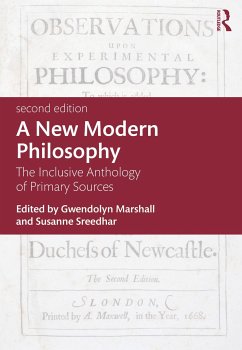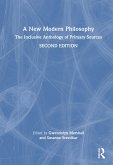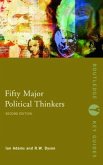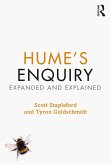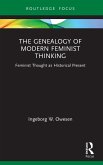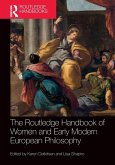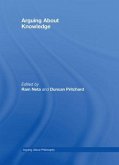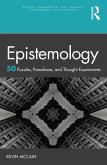The seventeenth and eighteenth centuries are arguably the most important period in philosophy's history, given that they set a new and broad foundation for subsequent philosophical thought. Over the last decade, however, discontent among instructors has grown with coursebooks' unwavering focus on the era's seven most well-known philosophers-all of them white and male-and on their exclusively metaphysical and epistemological concerns. While few dispute the centrality of these figures and the questions they raised, the modern era also included essential contributions from women-like Margaret Cavendish, Elisabeth of Bohemia, Mary Wollstonecraft, and Émilie Du Châtelet-as well as important non-white thinkers, such as Anton Wilhelm Amo, Julien Raimond, and Ottobah Cugoano. At the same time, there has been increasing recognition that moral and political philosophy, philosophy of the natural world, and philosophy of race-also vibrant areas of the seventeenth and ighteenth centuries-need to be better integrated with the standard coverage of metaphysics and epistemology.
The second edition of A New Modern Philosophy: The Inclusive Anthology of Primary Sources addresses-in one volume-these valid criticisms. Weaving together multiple voices and all of the era's vibrant areas of debate, this volume sets a new agenda for studying modern philosophy. It includes a wide range of readings from 36 thinkers, integrating essential works from all of the canonical writers along with the previously neglected philosophers. Editors Gwendolyn Marshall and Susanne Sreedhar provide an introduction for each author that sets the thinker in his or her time period as well as in the longer debates to which the thinker contributed. Study questions and suggestions for further reading conclude each chapter. At the end of the volume, in addition to a comprehensive subject index, the book includes 13 Syllabus Modules, which will help instructors use the book to easily set up different topically structured courses, such as "The Citizen and the State," "Mind and Matter," "Education," "Theories of Perception," or "Metaphysics of Causation."
And an eResource offers a wide range of supplemental online resources, including essay assignments, exams, quizzes, student handouts, reading questions, and scholarly articles on teaching the history of philosophy.
Key Updates to the Second Edition:
Provides an expanded table of contents and the addition of new chapters on Galileo and Sor Juana Ines De La CruzExpands readings and coverage in chapters on Spinoza and DescartesOffers improved Syllabus Modules at the back of the bookIncludes a new Student IntroductionUpdates bibliographic information
The second edition of A New Modern Philosophy: The Inclusive Anthology of Primary Sources addresses-in one volume-these valid criticisms. Weaving together multiple voices and all of the era's vibrant areas of debate, this volume sets a new agenda for studying modern philosophy. It includes a wide range of readings from 36 thinkers, integrating essential works from all of the canonical writers along with the previously neglected philosophers. Editors Gwendolyn Marshall and Susanne Sreedhar provide an introduction for each author that sets the thinker in his or her time period as well as in the longer debates to which the thinker contributed. Study questions and suggestions for further reading conclude each chapter. At the end of the volume, in addition to a comprehensive subject index, the book includes 13 Syllabus Modules, which will help instructors use the book to easily set up different topically structured courses, such as "The Citizen and the State," "Mind and Matter," "Education," "Theories of Perception," or "Metaphysics of Causation."
And an eResource offers a wide range of supplemental online resources, including essay assignments, exams, quizzes, student handouts, reading questions, and scholarly articles on teaching the history of philosophy.
Key Updates to the Second Edition:
Provides an expanded table of contents and the addition of new chapters on Galileo and Sor Juana Ines De La CruzExpands readings and coverage in chapters on Spinoza and DescartesOffers improved Syllabus Modules at the back of the bookIncludes a new Student IntroductionUpdates bibliographic information
Praise for the First Edition:
"This abundance of diverse thinkers, texts, and themes strikingly sets this anthology apart, and well worth special note is the exceptional number of writings by women philosophers and philosophers of color. . . . This is an exciting time for the history of modern philosophy, and the well-priced, well-intentioned, and commendably ambitious A New Modern Philosophy: The Inclusive Anthology of Primary Sources is a welcome and exciting addition to it."
Susan Mills in Teaching Philosophy
"This rich anthology of primary readings, with its inclusion of texts by women philosophers and philosophers of color, as well as topics rarely studied in survey courses of seventeenth- and eighteenth-century philosophy, is a superb and highly welcome new resource for teaching early modern thought."
Steven Nadler, University of Wisconsin-Madison
"This new anthology by Sreedhar and Marshall reflects the most recent scholarly advancements by including an impressively diverse range of figures who tackled a myriad of fascinating and important philosophical topics in the early modern period. Students who read it, and instructors who teach it, will obtain a far more accurate picture of early modern philosophy than those using standard textbooks."
Andrew Janiak, Duke University
"This abundance of diverse thinkers, texts, and themes strikingly sets this anthology apart, and well worth special note is the exceptional number of writings by women philosophers and philosophers of color. . . . This is an exciting time for the history of modern philosophy, and the well-priced, well-intentioned, and commendably ambitious A New Modern Philosophy: The Inclusive Anthology of Primary Sources is a welcome and exciting addition to it."
Susan Mills in Teaching Philosophy
"This rich anthology of primary readings, with its inclusion of texts by women philosophers and philosophers of color, as well as topics rarely studied in survey courses of seventeenth- and eighteenth-century philosophy, is a superb and highly welcome new resource for teaching early modern thought."
Steven Nadler, University of Wisconsin-Madison
"This new anthology by Sreedhar and Marshall reflects the most recent scholarly advancements by including an impressively diverse range of figures who tackled a myriad of fascinating and important philosophical topics in the early modern period. Students who read it, and instructors who teach it, will obtain a far more accurate picture of early modern philosophy than those using standard textbooks."
Andrew Janiak, Duke University

